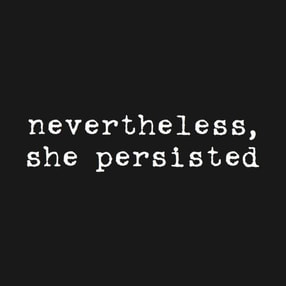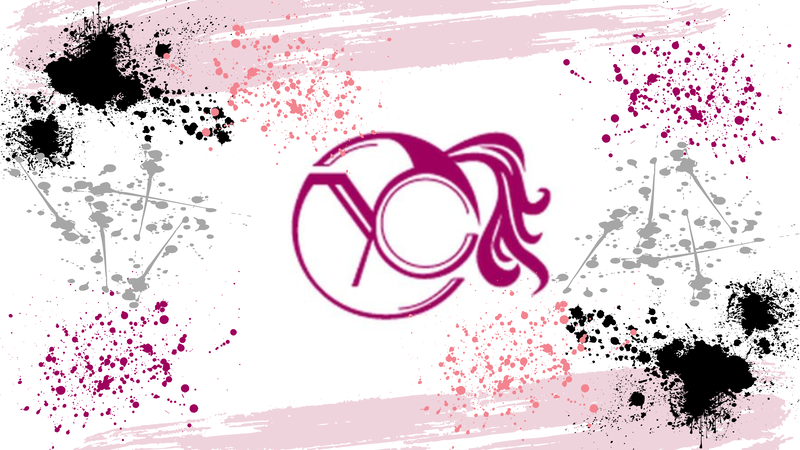|
By Yaritza Ellison There comes a point in our lives that we say enough to negative people and behavior. Or at least I hope there does. I have seen a lot of people in my life in a lot of different stages. There seems to be a reoccurring instance of passive or aggressive behavior seen, depending on the situation. Most people react to the situation. I have been one of those people. It took a lot of self discipline to understand that some situations call for a passive sort of behavior versus an out right bold maneuver. I hope this helps. Passive Behavior Passive behavior is when a person says something and does the absolute opposite. More than likely, this behavior is negative. I’ll give a scenario: Scenario 1: A person who disagrees with absolutely everything you do without giving you a positive input on how to improve the situation. Scenario 2: A person whom you have told several times your plans in detail, agrees to them, however does everything to hinder or sabotage them. In both the above scenarios, the person in question has shown that they are clearly against everything you have tried to do. They may not like you, or your decisions. But for whatever reason, the disconnect is there. This does not mean that there are not benefits to passive behavior. This type of behavior is a silent rebellion to whoever has wronged you, or has hurt you. If you are really good at it, the person who has hurt you won’t know that it was you who has been sabotaging them. That does not mean that there cannot be negative outcomes either. Negative outcomes to passive aggressive behavior include but are not limited to: running the risk of the person finding out it was you, or an outright aggressive move towards you. The best way to protect yourself from any of the above situations is to read the situation and person well. Is it really that the person is against you? What may have caused the disconnect? Aggressive Behavior I think that we all know what aggressive behavior looks like. Scenario 1: the person becomes verbally hostile and physically aggressive when contraindicated or crossed. Scenario 2: the person sends threatening letters, emails, and vocalizes discontent. Just as with passive behavior, this does not mean that there is no place for aggressive behavior. Actually it’s just the opposite: aggressive behavior is beneficial in some instances. Such as, making bold financial moves, bold executive mergers, etc. People with aggressive behavior really pave the way for those with lesser courage to change things. They are braver and have a “nothing to lose” attitude. However, overly aggressive individuals may find themselves a target of attacks. Either physically or mentally, these individuals face hate, resentment, or envy. The best way an aggressive person can protect themselves is to read the situation well. Does this situation call for a bold aggressive maneuver? Is there any other option that has not been explored? Avoidance
Most often it is best to not choose any of the above behaviors. Some resolutions include the following: 1. Be sympathetic to the situation and person. Seek to understand what is going on. 2. Show empathy by placing yourself in the other persons shoes. More often, we just focus on the problem and neglect the moving parts to the problem. Widen your focus. 3. Do not involve yourself in group think. Be fair and come up with a solution that works for all parties. Sometimes the solution may not work at all for either party. That’s okay. The fact is that a fair and decisive leader is needed and you stepped up. Kudos to you. 4. Now that we have the solution, it’s time to act on your word. This shows integrity on your part. Let’s be fully honest. Not acting on the said solution is another form of passive aggressive behavior. Mean what you say, and act on what you say. When seeking to understand why the behavior of one person makes sense to them, we should focus on the surrounding factors that influence it. Behavior is the by product of an individual’s surroundings. Some of the behavior is learned in childhood, other behavior is influenced by circumstance and is short term. Regardless of which, leading with an open mind and heart is key to any immediate or long term resolution.
0 Comments
Usually I have a systematic way of writing. I make an outline, I then move sentences around to make them fit, etc. Most of the time it feels very mechanical and choppy. I don’t feel the “creative juices” flowing and I feel constricted to the material I wrote on paper. This one will be a little different. I’m free typing what comes to my mind, I’ll make edits afterward, and make sure everything flows together. So, I encourage my readers to reach out for feedback regarding how this article came out.
I became inspired to write about acceptance and forgiveness after a discussion I had with a supervisor. Without going into much personal details, she and I had a very reflective conversation. While speaking out loud my personal feelings I revealed a lot of information that I thought I had accepted however, I had not. As therapeutic as this is for me, I hope it is the same for you. Why is acceptance important? Acceptance is when you tolerate something, someone, a circumstance and then move forward. The importance of moving forward should be emphasized here. We cannot move forward with our lives if we keep looking back at the situation that caused a lot of grievous feelings. We cannot move forward towards personal improvement if we keep looking back at someone who draws out a lot of mixed feelings too. We cannot hold them responsible for those feelings that they invoke in us either. The therapeutic forms of acceptance are seen in individuals who have undergone a very damaging circumstance and further progressed in their life. They inspire us to continue to work harder to make our own personal achievements reality, and therein are granted a mentor status in chapters of our books. This is also followed by forgiveness. Why is forgiveness important? It is not enough to accept the situation or thing that has caused a problematic response in your personal life. The key to truly accepting and moving forward is forgiveness. Forgive yourself for getting involved in a situation that caused this end result. Forgive the person that made the decision to rub you the wrong way. Forgive those around you for belittling you or not having faith in you. Forgive your friends for talking about how you will burn yourself out or not understanding your point of view. Through forgiveness, your world will be a little lighter, and a little brighter. It takes a lot for you to hold on to bad feelings like envy, hate, sadness, anger, frustration. Forgiveness is about helping you get through the ordeal and giving yourself time to heal. Then we are able to clearly self evaluate and prevent the situation from reappearing. We can take a look at our behaviors that made the situation implode. I use the word implode because more likely, the situation has not effected the other individual as much as it effected you. Some signs of an implosion are inability to focus, increased sleepiness, and feelings of emptiness or sadness. Forgive yourself, just as much as you are forgiving the other person. This does not mean that you and the other person are now BFFs and stuff. It just means that you accepted and forgave. Sometimes the individual may be so toxic that it is best that you cut your losses and continue to grow. You have now have evolved just because you went through what you went through. Now you know the signs of a toxic relationship and can deter the situation before it becomes extreme. Moving On Moving on can be a difficult task if acceptance and forgiveness has not been properly achieved. You will always be looking for signs of the past, and you will carry those difficult emotions with you to the next situation. You will essentially become the problem. This is no good. It is also a clear sign that you have not forgiven yourself yet. Once you have undergone acceptance and forgiveness, you will move on. It will be like breathing, easy to get to your goals and successes. You know when you have gotten to this developmental state when your life becomes focused on those you love, and the success of others as well as yourself. In this current decade that we live in, we are always pushed to test the boundaries. I think in just about every social media platform, commercial, and TV show it’s loud and in your face. Most of society now has a very selfish mindset. “Do what makes you feel good,” or “treat yourself.” I don’t know. I guess I’m still clinging to the old ways in which having personal values are more extravagant then outliving the next person. Although acceptance and forgiveness is about personal improvement, don’t forget to take care of those who truly love you, and whom you truly love. Thank you. |
AuthorYaritza Ellison has been an nurse since 2010. She has been essential to the healing process of many and seeks to continue to do so. Her passion for mental health and self help literature has lead her to launch justyari.org, where she aspires to coach young ladies navigating through work-life balance. Categories
All
|
Hungry for something else to read?
Check out the link below to find out about this amazing novel
Check out the link below to find out about this amazing novel
Copyright © 2022












